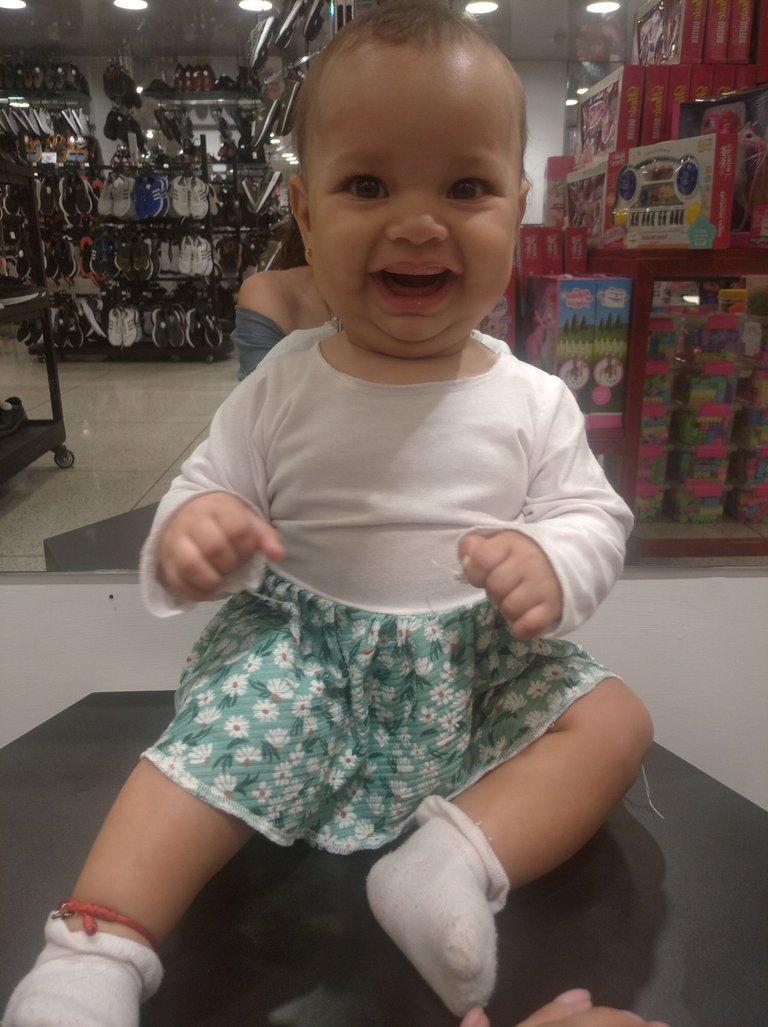
Algunas personas piensan que...
Debido a que los niños tienen deficiencia de calcio, los dientes tardan más en crecer.
Y la realidad es:
Que la dentición varía mucho ya que la erupción (brote) del primer diente suele producirse entre los 6 y 8 meses de edad, pero puede retrasarse hasta 15 meses. Por tanto, existen diferencias significativas en la erupción dental normal, ya que la ausencia de los dientes no se debe a la falta de calcio, flúor u otros nutrientes. Sino que depende principalmente de factores constitucionales o genéticos, y se debe a qué los padres del niño también tuvieron que haber padecido de retraso en la erupción de los dientes y por tal motivo el bebe suele verse afectado. Ahora bien, la edad al nacer también puede influir, ya que a los bebés prematuros les empiezan a salir los dientes más tarde.
Si la dentición se retrasa más de 15 a 18 meses, debe buscar condiciones subyacentes que puedan estar causando este retraso, como hipotiroidismo o deficiencia de vitamina D ya que estas enfermedades causan más síntomas y normalmente ya están diagnosticadas los patrones de erupción de los dientes los cuales varían ampliamente.
Destacamos que todo este proceso es muy variable, ya que nada está escrito en piedra y es normal que a su hijo le salgan los dientes más tarde que a otros niños, y por tal motivo es que vemos niños de 6 meses con almenos dos dientes en la parte inferior o simplemente vemos niños como en mi caso que mi hija tiene 8 meses y aún no le sale alguno porque es que lo más común es que aparezcan primero los dientes medios (incisivos centrales) del arco inferior (mandíbula), luego los dientes del arco superior (maxilar) y luego los laterales superiores (incisivos laterales). Luego aparece la parte inferior, o emergen los primeros dientes de leche (primeros molares), dejando un espacio para los colmillos (caninos). Luego aparecen estos dientes y finalmente los segundos dientes de leche (segundos molares).

Por lo tanto es normal un rango muy amplio y cada niño tiene un calendario de erupción dental único y los dientes primarios completos suelen formarse entre los 2 y 3 años de edad y constan de un total de 20 piezas.
Generalmente, a las niñas les salen los dientes antes que a los niños. En la mayoría de los casos, el de abajo va delante del de arriba, normalmente en pares (uno a la izquierda, otro a la derecha). Los dientes de leche son más pequeños y más blancos que los dientes permanentes y alrededor de los 4 años, sucede el crecimiento de la mandíbula superior y todos los huesos faciales crea un espacio entre los dientes de leche. Este es un proceso que permite una retención más fácil de los dientes permanentes más grandes.
Los niños de entre 6 y 12 años tienen en la boca una combinación de dientes primarios y permanentes, lo que se conoce como dentición mixta. En conclusión, podemos decir que la erupción de los dientes es uno de los momentos más importantes en el tratamiento dental, y en este caso es muy importante practicar unos hábitos estrictos de higiene bucal. Para evitar varias condiciones médicas comunes como: Por ejemplo, las caries son comunes en los dientes temporales y pueden causar una variedad de problemas dentales en los niños pequeños.
Comunidad de Hive diversión ilimitada!
- FOTOS EXCLUSIVAS DE MI PROPIEDAD
- TELÉFONO INFINIX SMART 8
- TRADUCTOR DE DEEPL

ENGLISH
Some people think that...
Because children are calcium deficient, teeth take longer to grow.
And the reality is:
That teething varies greatly as the eruption (eruption) of the first tooth usually occurs between 6 and 8 months of age, but can be delayed up to 15 months. Therefore, there are significant differences in normal tooth eruption, since the absence of teeth is not due to a lack of calcium, fluoride or other nutrients. It depends mainly on constitutional or genetic factors, and is due to the fact that the child's parents must also have suffered from delayed eruption of the teeth and for this reason the baby is usually affected. However, age at birth may also play a role, as premature babies start teething later.

If teething is delayed more than 15 to 18 months, you should look for underlying conditions that may be causing this delay, such as hypothyroidism or vitamin D deficiency as these diseases cause more symptoms and usually already diagnosed tooth eruption patterns which vary widely.
We emphasize that this whole process is very variable, since nothing is written in stone and it is normal that your child's teeth come in later than other children, and for this reason is that we see children of 6 months with at least two teeth on the bottom or simply see children as in my case that my daughter is 8 months old and still does not have any teeth because the most common is that the middle teeth (central incisors) of the lower arch (jaw) appear first, then the teeth of the upper arch (maxilla) and then the upper lateral (lateral incisors). Then the lower part appears, or the first milk teeth (first molars) emerge, leaving a space for the fangs (canines). Then these teeth appear and finally the second milk teeth (second molars).
Therefore a very wide range is normal and each child has a unique eruption schedule and complete primary teeth usually form between 2 and 3 years of age and consist of a total of 20 teeth.
Girls generally teething earlier than boys. In most cases, the bottom one goes in front of the top one, usually in pairs (one on the left, one on the right). Baby teeth are smaller and whiter than permanent teeth and around the age of 4, the growth of the upper jaw and all the facial bones creates a space between the baby teeth. This is a process that allows for easier retention of larger permanent teeth.
Children between the ages of 6 and 12 have a combination of primary and permanent teeth in their mouths, known as mixed dentition. In conclusion, we can say that the eruption of teeth is one of the most important moments in dental treatment, and in this case it is very important to practice strict oral hygiene habits. To avoid several common medical conditions such as: For example, cavities are common in primary teeth and can cause a variety of dental problems in young children.
Hive community unlimited fun!
- EXCLUSIVE PHOTOS OF MY PROPERTY
- PHONE NUMBER INFINIX SMART 8
- TRANSLATOR OF DEEPL